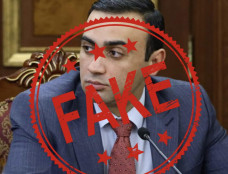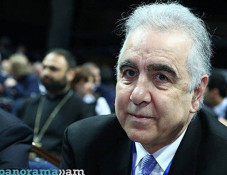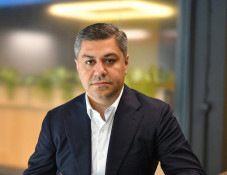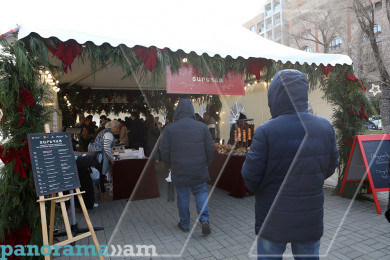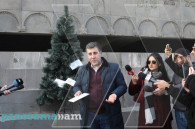
The Washington Post: Renewal of war in Nagorno-Karabakh would be a disaster
“Nagorno-Karabakh — this is where the first war set off by the Soviet collapse took place. And it may be where the next one breaks out,” The Washington Post wrote in an article on Nagorno-Karabakh.
“A renewal of the war would be a disaster for all concerned, unless it were very quick,” the paper said.
“On this they agree. The two sides are much more heavily armed than they were in 1991, especially Azerbaijan. It might be very difficult for Iran, Turkey and Russia to remain uninvolved — and impossible to confine the fighting to Nagorno-Karabakh itself. A major supply route used by the United States to provision troops in Afghanistan would be disrupted.”
The article quotes Robert Bradtke, the U.S. diplomat involved in the talks, as saying: “We share the wish that there be no war. But do the parties have the political will?”
“But Azerbaijan also says that it will never formally surrender territory. And the people of Nagorno-Karabakh say they will never give up the right of self-determination. For two decades, both sides have kept passions inflamed, which turns out to be good politics for those at the top,” the article said.
“We had nothing, and out of nothing we created something,” said Galya Arstamyan, whose son Grigory left the Soviet army so he could return home to fight. He was killed. Today she runs a museum dedicated to those who died. “We will live and prove to the world that Karabakh is the heart of the Armenian nation and the spirit of the Armenian nation. The land on which we live has become sacred from the blood of our martyrs. We are not recognized, but we are still here. We ask nothing from the world.”
According to the paper, Tevan Poghosyan has sponsored focus groups in Karabakh, Azerbaijan and Armenia. He said Azerbaijanis define “security” as the restoration of Azerbaijani rule over Karabakh. In Armenia proper, people believe security will come from an international settlement of the dispute, followed by diplomatic recognition of Karabakh. In Karabakh itself, he said, the attitude is: “Unrecognized? So what? My son is my best peacekeeper. What’s mine is mine.”
“The strongest thing that keeps us here is our faith,” The Washington Post quotes Artsakh Prime Minister Ara Harutyunyan as saying. “In Artsakh, we have 70,000 Abrahams. We fully realize our children can become sacrifices any day. But we still live here, still give birth to children. And we think this is the main guarantee of our security.”
Newsfeed
Videos










